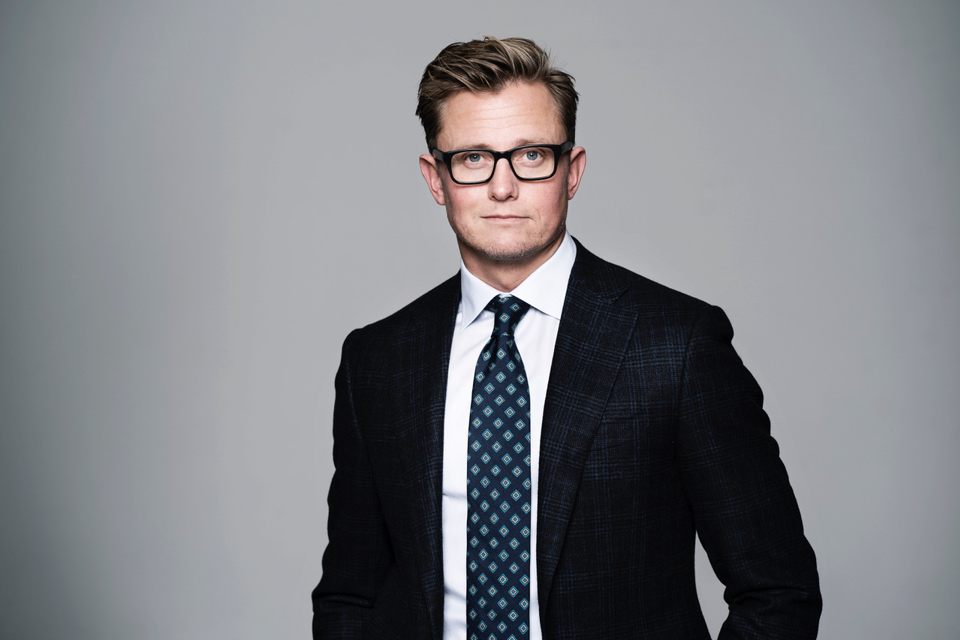Key Takeaways from the WEF 2025 Emerging Technology Solutions for Planetary Health
Drawing on the World Economic Forum’s first technology report on planetary health, created in partnership with Frontiers, this COP30 panel highlighted key takeaways for deploying ten emerging solutions at scale. Panellists emphasised shifting from self-reported data to precise earth observation, investing in digital-twin diagnostics, and embedding policy, finance, and community co-creation to ensure equitable, real-world impact for restoring planetary systems.
Science and science advice: a defining moment?
Science and science advice: a defining moment? explores the evolving role of science and scientists in policymaking amid societal complexity, polarization, and uncertainty. It highlights challenges in trust between society, governments, and research institutions, and considers how science advice can remain effective, inclusive, and evidence-based. The article emphasizes collective intelligence, the role of honest brokers, and the importance of iterative, context-sensitive approaches to navigating complex policy landscapes.
Strengthening the International Ecosystem for Scientific Advice
Strengthening the International Ecosystem for Scientific Advice examines the growing global and European efforts to build more coordinated, resilient, and inclusive science-for-policy systems. Drawing on recent initiatives by INGSA, the European Commission, and national advisory communities, the article outlines the opportunities and challenges of linking diverse advisory structures, reducing fragmentation, and enhancing institutional capacity for evidence-informed policymaking. It highlights the importance of connectivity, mutual learning, and principled approaches to scientific advice—especially in a period marked by geopolitical uncertainty, technological transformation, and complex societal challenges.
Science advice in challenging settings: is Europe backsliding?
Science advice in challenging settings is an increasingly relevant issue and there is value in ‘slow conversation’ to explore the challenges and co-create paths forward. This series aims to address some of the recent challenges that emerged in conversations that have taken place through the INGSA Europe community. We invite contributions to this ‘slow conversation’ to explore more deeply how science advice can be effective today and lay evidence based foundations for the future that is being created.
Key Takeaways from the WEF 2025 Top 10 Emerging Technologies
The Top 10 Emerging Technologies of 2025 report, published by the World Economic Forum in collaboration with Frontiers, highlights breakthrough innovations shaping the future of energy, information technology, and sustainability. During a panel discussion focused on the report, experts explored how fusion energy, green chemistry, and next-generation sensing systems are advancing from research to real-world impact. Key themes included AI as a cross-cutting enabler, the centrality of energy to global transformation, and the need for patient capital and societal readiness to scale these technologies.
Exploring the limits and culture of academic freedom: Insights from the 2024 Falling Walls Science Summit
Academic freedom is a prerequisite for scientific advancement and innovation. It serves as the cornerstone of scientific inquiry, granting scholars the unfettered ability to explore, teach, and disseminate ideas without fear of censorship or retribution. More recently, academic freedom has faced mounting political, economic, and social pressures, bringing it back into the global spotlight. Safeguarding this freedom is essential for the continued pursuit of knowledge and the betterment of society.
Insights from COP29
Participating last month at COP29 in Baku, Azerbaijan, I had the pleasure of moderating a discussion with some of the leading voices in climate science and innovation on a subject that couldn’t be more relevant given the setting and the stakes.
The topic of discussion was the underutilization of scientific knowledge in processes geared toward policy consensus and climate action. The question on the floor was: “[If] we possess so much scientific knowledge about the causes for the climate multi-crisis and about the solutions, why then does science not play a bigger role in breaking what seems like an endless cycle of deadlocked discussions?”
Key takeaways from the WEF 2024 Top 10 Emerging Technologies panel
In June, the World Economic Forum (WEF) and Frontiers unveiled the awaited Top 10 Emerging Technologies of 2024 report. Now in its 12th year, the report continues to spotlight groundbreaking technologies that are poised to influence society and address critical global challenges. This year's report is the culmination of extensive research and collaboration among leading experts and innovators, broadening the scope and deepening the analysis of the findings. It showcases technologies that are not only innovative but also have the potential to drive sustainable development and economic growth within the next three to five years. From revolutionizing connectivity to pioneering new applications of artificial intelligence (AI), the 2024 report offers a comprehensive overview of the technologies set to shape our future.
Powering academic freedom - Essential insights for policy makers
The European Parliament, through its standing committee Science and Technology Options Assessment (STOA), commissioned a study on monitoring academic freedom. The study “The state of play of academic freedom in the EU member states” has been led by Peter Maassen, a participant in this Frontiers’ webinar. This follows numerous European and global organizations and networks raising concerns, calling for action, and protection against threats to academic freedom (The European University Alliance (EUA), the League of European Research University (LERU), Scholars at Risk, etc.). Several recent ad hoc events and panels on the subject have also shown the importance and urgency in addressing the matter. Yet, there is still a lack of a permanent forum for factual and constructive dialogue among scholars, academic leaders, civil society groups, and policy makers.
Igniting climate action through transformational open science: Key takeaways from COP28 (Part 2)
This year’s COP28 was a pivotal moment for the world to unite around tangible climate action and deliver realistic solutions.
Frontiers and the Frontiers Research Foundation organized several complementary panel sessions around open science and pathways towards innovative, sustainable solutions and actions featuring prominent experts and decision makers from policy, academia, and industry.
How open science and radical collaboration can solve the climate emergency: Key takeaways from COP28 (Part 1)
The 28th Conference of the Parties (COP28) took place in Dubai, United Arab Emirates from 30 November to 12 December 2023. The gathering marked a critical moment for global transformative climate action as world leaders negotiated and agreed action on how to tackle climate change, limit emissions, and halt global warming.
Open science platform Frontiers and the Frontiers Research Foundation participated in COP28 to ascertain the undeniable power of open science and advance the mission to make science open so that scientists can collaborate better and innovate faster to deliver the solutions that enable healthy lives on a healthy planet.
Which are the next walls to fall in science and society? Key takeaways from the Falling Walls Science Summit 2023
The Falling Walls Science Summit took place from 7 to 9 November in Berlin, Germany, marking its 15th edition. Falling Walls is a leading international, interdisciplinary, and cross-sectoral forum for science discovery and scientific dialogue among leading scientists and society worldwide. The annual event serves as a catalyst for innovation, fostering interdisciplinary dialogue, and promoting breakthrough thinking.
Frontiers and the Frontiers Research Foundation, in collaboration with the Falling Walls Foundation, organized two complementary sessions around the climate crisis and planetary boundary science, respectively
Key takeaways from AI and Academic Research panel
To foster the discussion on AI and academic, Frontiers Policy Labs and Frontiers’ publishing development department organized a live multidisciplinary panel session in October. The event featured distinguished academics from various fields of research, who are recognized for their knowledge and implementation of AI systems in their respective areas. Mathieu Denis, head of the Centre for Science Futures at the International Science Council, moderated the discussion.
Key takeaways from the WEF 2023 Top 10 Emerging Technologies panel
In June, the World Economic Forum (WEF) and Frontiers unveiled the eagerly awaited Top 10 Emerging Technologies of 2023 report, marking its 11th edition. This annual report, created in collaboration with Frontiers, spotlights revolutionary technologies poised to make a positive global impact. Read by business leaders, innovators, and policymakers, it has historically predicted game-changers like CRISPR and mRNA. Since its June release, the report has attracted substantial attention, with 750+ citations in global media, 50,000 online views, and 20,000 downloads. In September, WEF and Frontiers hosted a dynamic panel discussion led by Dr. Fred Fenter, delving into key insights on these technologies' implications, especially Artificial Intelligence (AI), spanning policy, governance, and societal influence. Experts shed light on the opportunities and challenges these technologies present.
Frontiers Policy Labs: Global challenges, science diplomacy
We face global, existential threats. From health emergencies to climate change, we see and feel them now. These threats can be managed and reversed. But that will require political will, global collaboration, and scientific breakthroughs at a scale not yet seen. Three experts shine a light on the missing links between science and international diplomacy. They ask how we can grow consensus when public trust in science and politics is fragile. And they make the case for science diplomacy.
Frontiers Policy Labs: In conversation with Robert-Jan Smits
Robert-Jan Smits
The inside story of Plan S, the ground-breaking campaign pledge to end the restrictive paywalls around taxpayer funded scientific research. Vital scientific knowledge freed and instantly available to the many, not just the few. The campaign coalition's architect, Robert-Jan Smits, shares his account of the shocks that Plan S delivered to the publishing world, and of the progress that unfolded.
Prof.Linqi Zhang: COVID-19, lessons learned from HIV research
Professor Linqi Zhang,
School of Medicine, Tsinghua University
Chair of Comprehensive AIDS Research Center, School of Medicine, Tsinghua University
Chair of Global Health and Infectious Diseases Center
Open Access is the new normal
Robert-Jan Smits
President of the Executive Board
Eindhoven University of Technology
Prof. Jean Claude Burgelman, Free University of Brussels discuss the profound and radical change COVID-19 has brought to the science-policy nexus.
Part II – Global science governance
Sir Peter Gluckman
Chair, International Network
for Government Science Advice
Sir Peter Gluckman and Prof. Jean Claude Burgelman consider the impact of COVID-19 and the mechanics and interface between science and policymaking at an international level
Part I – Science advice and policymaking
Sir Peter Gluckman
International Network for Government Science Advice
Sir Peter Gluckman, Chair, International Network for Government Science Advice speaks to Prof. Jean Claude Burgelman, Free University of Brussels about scientific advice and policymaking in the context of the COVID-19 response





















